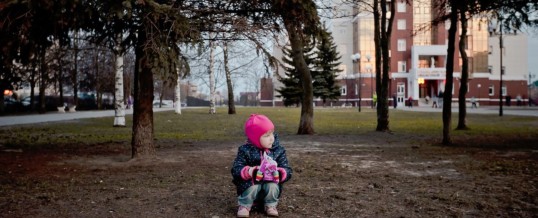
Every day brings new reports of adults in some position of responsibility who take advantage of the trust that children place in them.
All of us have to worry about our children’s safety, and it’s easy to wonder what we should be doing to safeguard them from predators.
Parents of school-age children can talk about the importance of speaking up whenever anything feels uncomfortable. Parents of adolescents can talk even more directly with them about sexual assault.
However, dealing with the issue of self-protection with preschool children is very different.
We want to caution parents against scaring or confusing very young children with lectures about not speaking to strangers, or protecting themselves against improper advances from anyone other than Mommy, Daddy or grandparents.
These messages can be utterly confusing to little children. It can be scary and upsetting, and can cause them to overreact in many ways.
For instance, they can become afraid of going to sleep, of the dark, of speaking to anyone. They can become overly excited and engage in mutual sexual play; or pretend to go looking for imaginary molesters, which shows that they are acting out what they are trying to understand.
Needing to protect oneself is a big responsibility that young children cannot possibly take on by themselves. We must be with them at all times, or place them in the care of family members or someone who has been checked out thoroughly and found to be completely trustworthy.
But there are things parents can do to help young children resist the advances of people who want to take advantage of them – though children need a long time to achieve mastery of the care and protection of their bodies.
They learn these skills by observing the things we parents do every day.
For example, they observe how we behave with strangers, who we talk to and who we avoid.
A young child goes from being totally cared for by his parents to wanting to do things for himself: feeding, washing, toileting, and dressing himself. And parents welcome this evidence that he is growing up and wants privacy and control over his own body.
Here is what Barbara Streeter, consulting therapist at Hanna Perkins Center, says about helping children protect themselves:
“What protects a child best is a sense of self-worth, an ability to know when he is being treated disrespectfully, and a sense that he has the right and ability to defend himself.”
To help a child develop those attributes and abilities, Streeter offers the following thoughts:
- Always treat the child with respect, physically and emotionally.
- Listen to and observe what he likes/dislikes and respond accordingly.
- Protect her from intrusions of other adults – such as unwanted kisses, hugs, tickles, jokes, teases, insensitive doctors, salesmen, etc.
- Support a child’s “no” to others when spoken or communicated non-verbally.
- Assist a child in finding ways to defend himself when playmates and siblings are unkind in any way.
- Show respect for – and support – a child’s need for privacy and control over what gets done to his body (eating, toileting, dressing, administering medications, etc.).
- Avoid activities that make a child feel helpless (for example, adults overpowering a child by showing off their physical strength or engaging in excessive tickling).
- Assist children in developing respect for “personal space”.
- Carefully assess any person a child is being left with, and seriously consider any doubts you or the child might have.
- Listen to what children have to say; let them know that we don’t automatically assume people in authority are right and they are wrong.
When children learn how to protect themselves, it’s not through our lectures or admonitions, but by observing the way their parents respect them and take care of them.
It’s a big job, but no one ever said being a parent was easy. We salute you and wish you well in doing that big job.
Explore our kindergarten and preschool programs. For younger children, our parent/toddler program provides developmentally minded fun.
FEB
2023


About the Author: